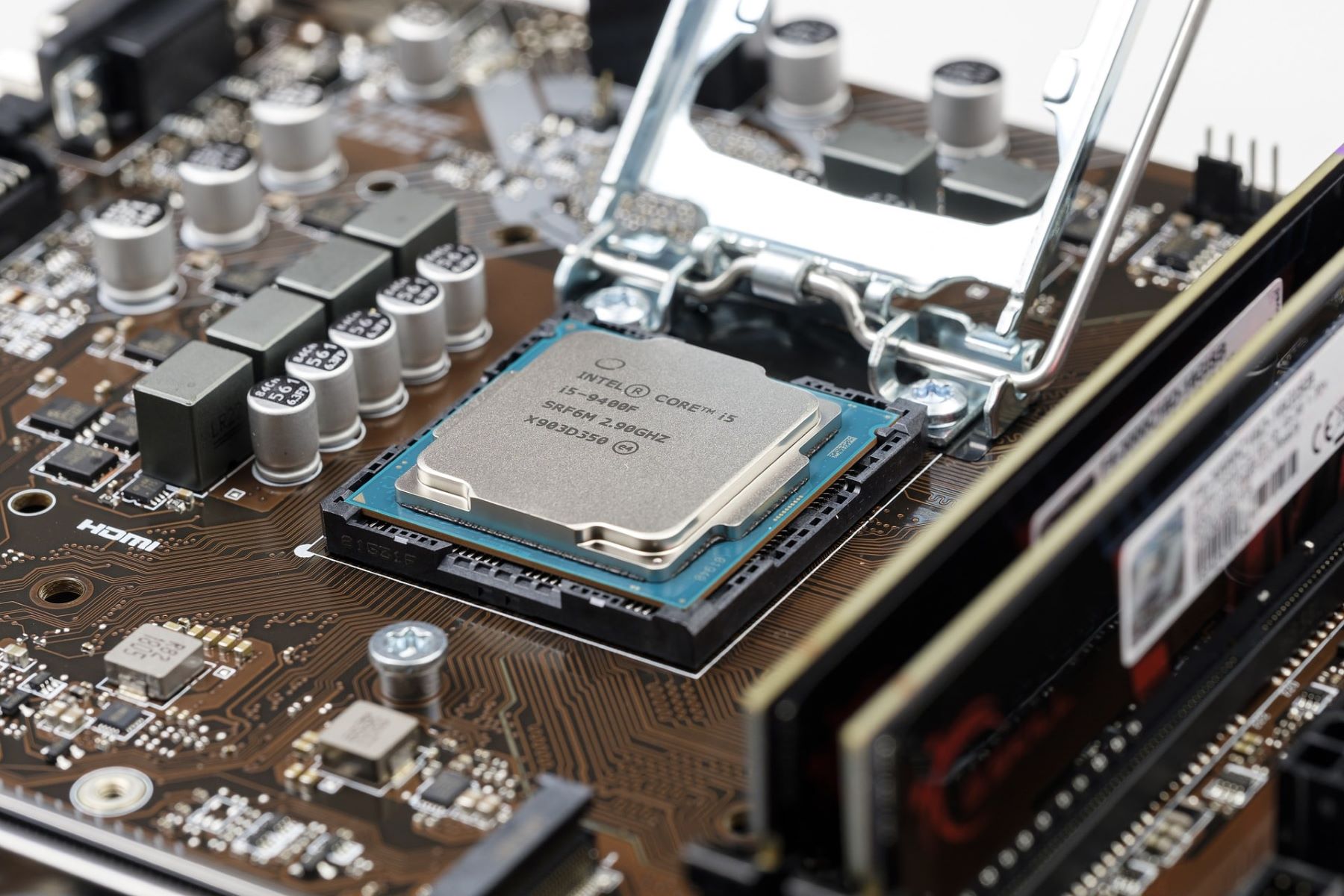Introduction
Welcome to our article on the topic of “What Will Happen If a UPS Battery Overheats.” In the world of technology and power backup systems, an Uninterruptible Power Supply (UPS) plays a crucial role in safeguarding electrical devices. However, just like any other piece of equipment, a UPS battery is susceptible to overheating, which can lead to various complications and potential risks.
Understanding the causes, signs, and consequences of an overheating UPS battery is essential for both individuals and businesses who rely on uninterrupted power supply. This article aims to shed light on this topic by addressing the potential risks, damages, and safety concerns associated with an overheating UPS battery. Furthermore, we will discuss preventative measures and maintenance tips to avoid such situations and ensure the longevity and efficiency of your UPS battery system.
So, if you own or operate an electrical device that relies on a UPS battery for backup power, read on to learn about the possible consequences of an overheating UPS battery and how to protect yourself from potential issues. This knowledge will help you make informed decisions regarding the safety and maintenance of your UPS battery system, leading to a smooth power backup experience.
What is a UPS Battery?
Before delving into the topic of UPS battery overheating, it’s important to understand what a UPS battery is and its role in providing uninterrupted power supply to electronic devices. UPS, short for Uninterruptible Power Supply, is a backup power system that helps protect sensitive equipment from power disruptions, such as blackouts, voltage fluctuations, or power surges.
At the heart of a UPS system is its battery. A UPS battery serves as an energy storage unit that provides a temporary power source when the main power supply is unavailable. It acts as a bridge between the mains power and the connected devices, ensuring continuity and preventing data loss or damage during power outages.
UPS batteries are commonly used in various settings, including homes, offices, data centers, hospitals, and industrial facilities. They are available in different capacities, voltages, and chemistries, depending on the specific requirements of the devices they are intended to support.
Most UPS batteries are rechargeable and employ sealed lead-acid or lithium-ion chemistries. These batteries are designed to deliver a steady flow of power for a specified period, allowing for a smooth transition between mains power failure and the activation of backup power until the mains power is restored.
In addition to providing power during outages, UPS batteries also serve another important purpose – they act as a buffer against power surges or voltage spikes. These transient voltage disturbances can occur due to lightning strikes or faulty electrical equipment and can potentially damage electronic devices. By absorbing and regulating the voltage, UPS batteries safeguard sensitive equipment and prevent potential damage.
However, like any other piece of technology, UPS batteries are not invincible. Over time, various factors can contribute to the degradation and malfunctioning of UPS batteries, including overheating. In the following sections, we will explore the reasons behind UPS battery overheating, its signs, consequences, and the measures to prevent it from happening.
How does a UPS Battery Overheat?
Understanding the reasons behind UPS battery overheating is crucial in order to prevent potential risks and complications. Several factors can contribute to the overheating of a UPS battery. Let’s explore some of the common causes:
- Poor Ventilation: Inadequate airflow around the UPS battery can lead to heat buildup. When the battery is not properly ventilated, the heat generated during the charging and discharging process gets trapped, causing the temperature to rise excessively. Over time, this can lead to overheating.
- High Ambient Temperature: The surrounding temperature plays a crucial role in the overall temperature of the UPS battery. If the UPS system is placed in a location with high ambient temperature, such as a server room or an area without proper air conditioning, the excess heat can transfer to the battery and increase the chances of overheating.
- Overcharging: Overcharging occurs when a UPS battery is continuously charged even after it has reached its full capacity. This situation can happen if the charging circuitry of the UPS is malfunctioning or if the battery is not appropriately sized for the load it is meant to support. Overcharging leads to excess heat generation and can significantly accelerate the deterioration of the battery.
- Age and Wear: Like all batteries, UPS batteries have a limited lifespan. As they age, their internal components deteriorate, resulting in decreased efficiency and increased heat generation. An old or worn-out battery is more susceptible to overheating, and if not replaced in a timely manner, it can pose a significant risk to the UPS system and the connected equipment.
- Overloading: Overloading occurs when the UPS system is unable to handle the power demand of the connected devices. When the load exceeds the rated capacity of the UPS, it puts excessive strain on the battery, leading to increased heat generation. Continuous overloading can cause the battery to overheat and, in severe cases, result in its failure.
It is important to monitor the temperature of your UPS battery regularly and take preventive measures to avoid overheating. Regular maintenance, proper ventilation, and ensuring the UPS system is appropriately sized for the load are crucial steps in preventing overheating and maximizing the lifespan and performance of your UPS battery.
Signs of an Overheating UPS Battery
Recognizing the signs of an overheating UPS battery is vital to identify and address the issue before it escalates into a more significant problem. Here are some common indicators that your UPS battery may be overheating:
- Hot Battery Surface: One of the most obvious signs of an overheating UPS battery is when the battery surface feels excessively hot to the touch. While it’s normal for a battery to generate some heat during operation, if the temperature becomes uncomfortably high or noticeably hotter than usual, it could indicate a problem.
- Frequent Alarms or Alerts: Most modern UPS systems come with built-in sensors and alarms to detect abnormal operating conditions. If you notice that the UPS system is frequently triggering alarms or generating alerts related to battery temperature or temperature thresholds being exceeded, it may be a sign of an overheating battery.
- Reduced Battery Runtime: Overheating can have a negative impact on the performance of a UPS battery. If you observe a significant decrease in the backup runtime compared to its original specifications, it could be an indication that the battery is overheating and losing its capacity to hold a charge effectively.
- Unusual Odors: An overheating UPS battery may emit an unusual odor, often described as a strong chemical or burnt smell. If you encounter such odors emanating from the UPS system, it is essential to investigate the cause promptly.
- Visible Damage or Bulging: Visibly damaged or bulging batteries are clear signs of a more severe overheating issue. Heat can cause internal pressure to build up within the battery, leading to swelling or distortion of its casing. If you notice any abnormalities in the physical appearance of the battery, it is crucial to take immediate action.
If you observe any of these signs, it is important not to ignore them. Ignoring an overheating UPS battery can have serious consequences, including potential fire hazards, damage to connected equipment, and data loss. Acting promptly to address the issue can help prevent further damage and ensure the safe and efficient operation of your UPS battery system.
Consequences of an Overheating UPS Battery
An overheating UPS battery can have a range of consequences, both in terms of safety and functionality. It is important to be aware of these potential outcomes to understand the seriousness of the situation. Here are some of the main consequences of an overheating UPS battery:
- Fire Risk and Safety Concerns: One of the most significant dangers of an overheating UPS battery is the increased risk of fire. When a battery overheats, it can lead to a thermal runaway, causing the internal components to break down and release flammable gases. These gases, when combined with heat and oxygen, can result in a fire or explosion. This poses a significant safety hazard to the surrounding area and the people in close proximity to the UPS system.
- Damages to the UPS Battery System: Overheating can cause irreparable damage to the UPS battery itself, including degradation of its performance and capacity. Prolonged exposure to high temperatures can accelerate the aging process of the battery, reducing its lifespan and effectiveness. In some cases, an overheating battery may even fail completely, requiring a costly replacement.
- Impact on Power Supply and Data Loss: A malfunctioning UPS battery due to overheating can jeopardize the stability and reliability of the power supply it provides. In the event of a power outage or disruption, an overheated battery may fail to deliver the required backup power, leading to downtime and potential data loss. This can be particularly devastating for businesses that rely on uninterrupted power supply to ensure the continuity of their operations.
- Financial Loss: The consequences of an overheating UPS battery can result in significant financial loss. From the cost of replacing the damaged battery to potential equipment repairs and downtime, the financial impact of an overheating UPS battery can be substantial for both individuals and businesses.
It is crucial to take the necessary precautions and address an overheating UPS battery promptly to mitigate these consequences. Regularly monitoring the battery’s temperature, ensuring proper ventilation, and conducting routine maintenance can help prevent overheating issues and safeguard both the UPS system and the connected devices.
Fire Risk and Safety Concerns
One of the most critical consequences of an overheating UPS battery is the increased risk of fire, presenting significant safety concerns. Understanding the potential fire hazards associated with an overheating UPS battery is crucial to take appropriate preventive measures. Here are the main fire risks and safety concerns that arise from an overheating UPS battery:
- Thermal Runaway: When a UPS battery overheats, it can lead to a phenomenon known as thermal runaway. Thermal runaway occurs when the internal temperature of the battery rises to a critical point, causing a chain reaction within the battery cells, leading to a rapid increase in temperature. This process can result in the release of flammable gases and the generation of intense heat, creating the perfect conditions for a fire to occur.
- Ignition of Flammable Materials: In the event of a thermal runaway, the release of flammable gases from an overheated UPS battery can create a highly combustible environment. If these gases come into contact with nearby flammable materials, such as paper, insulation, or other combustible substances, it can potentially ignite a fire. This is particularly concerning in environments where there may be a significant presence of combustible materials, such as server rooms or data centers.
- Explosion Risks: In severe cases, an overheating UPS battery can lead to an explosion. When internal pressure builds up due to excessive heat, it can cause the battery casing to rupture or burst, resulting in the release of fiery debris and dangerous chemicals. An explosion not only poses a severe threat to the surrounding area but can also lead to injuries or fatalities if people are nearby when it occurs.
- Smoke and Toxic Fume Emission: In addition to the risk of fire and explosion, an overheating UPS battery can also generate smoke and toxic fumes. The smoke emitted during a battery fire can obstruct visibility and make evacuation challenging in an emergency situation. Moreover, the release of toxic fumes, such as hydrogen gas, sulfur dioxide, or hydrogen chloride, can pose a significant health hazard to individuals in the vicinity.
To mitigate these fire risks and safety concerns, it is crucial to implement appropriate safety measures. This includes regular inspection and maintenance of the UPS system, ensuring proper ventilation and adequate spacing around the battery, and installing fire suppression systems in critical areas. Additionally, having an emergency response plan in place and conducting regular fire drills can help minimize potential damage and ensure the safety of occupants in the event of a fire caused by an overheating UPS battery.
Damages to the UPS Battery System
An overheating UPS battery can cause significant damages to the UPS battery system itself, leading to performance degradation and potential system failure. Understanding these damages is crucial to grasp the importance of preventing battery overheating. Here are the main consequences and damages that can occur to the UPS battery system:
- Reduced Battery Life: Continuous exposure to high temperatures due to overheating can significantly reduce the lifespan of a UPS battery. Heat accelerates the chemical reactions within the battery, causing the internal components to degrade at a faster rate. As a result, the battery’s overall capacity diminishes over time, reducing its ability to hold a charge and deliver backup power effectively.
- Capacity Loss: Overheating can cause irreversible damage to the chemical reactions that occur within a UPS battery, reducing its capacity to store and deliver power. This capacity loss can result in decreased backup runtimes, leading to insufficient power supply during outages and potentially causing disruptions to critical systems or equipment.
- Increased Internal Resistance: When a UPS battery overheats, it can increase the internal resistance of the battery cells. This increased resistance creates inefficiencies in the battery’s ability to deliver power and can lead to voltage instability. As a result, the UPS system may struggle to provide a consistent and reliable power supply to the connected devices, potentially causing disruptions or damage to sensitive equipment.
- Battery Swelling or Bulging: Excessive heat generated by an overheating UPS battery can cause physical damage to the battery itself. This can result in swelling or bulging of the battery casing, indicating internal pressure build-up. Swollen batteries are a clear sign of damage and can indicate a compromised structural integrity, making them more prone to leakage, electrolyte loss, or even potential rupture.
- Parts & Component Failure: Overheating can affect not only the battery but also other components within the UPS system. High temperatures can cause degradation of electrical components, such as capacitors, resistors, or circuit boards. This can lead to system malfunctions, reduced efficiency, or complete failure of the UPS system.
To mitigate these damages, regular maintenance, proper ventilation, and ensuring that the UPS system is appropriately sized for the load it supports are essential. Implementing temperature monitoring systems and conducting periodic inspections can also help identify potential issues early on and take necessary corrective actions to protect the UPS battery system from further damage.
Impact on Power Supply and Data Loss
An overheating UPS battery can have a significant impact on the power supply it provides, potentially leading to disruptions and data loss. Understanding these impacts is crucial for individuals and businesses relying on uninterrupted power supply. Here are the main consequences of an overheating UPS battery on power supply and data loss:
- Insufficient Backup Power: An overheating UPS battery can compromise its ability to deliver backup power during a mains power failure. As the battery deteriorates due to excessive heat, its capacity to hold a charge is reduced, resulting in shortened backup runtimes. This can lead to insufficient power supply to the connected devices, potentially causing disruptions in critical operations or system shutdowns.
- Voltage Instability: Overheating can increase the internal resistance of the UPS battery, leading to voltage instability. Fluctuating voltages can negatively impact the connected devices, especially those that require a stable power supply, such as computers, servers, or sensitive electronics. Voltage instability can cause system glitches, unexpected reboots, or even permanent damage to the equipment.
- Downtime and Productivity Loss: If an overheating UPS battery fails to provide the necessary backup power during a power outage, it can result in downtime for businesses and individuals. Downtime leads to a loss of productivity, revenue, and customer satisfaction. Critical processes, such as data transfers, transactions, or production lines, may come to a halt, causing financial and operational ramifications.
- Data Corruption or Loss: During a power outage, an overheating UPS battery may fail to provide consistent power supply to data storage devices, such as servers or hard drives. This can result in data corruption or even permanent loss if the files were not properly saved or backed up. Data loss can have severe consequences, including financial loss, legal implications, and reputational damage for businesses and individuals alike.
- Medical and Safety Equipment Impact: In settings such as hospitals or emergency response centers, an overheating UPS battery can pose serious risks to medical and safety equipment. If the UPS system fails due to battery overheating, essential equipment like life support systems, ventilators, or fire alarms may cease to function. This can jeopardize the safety and well-being of patients and personnel in critical situations.
To minimize the impact on power supply and mitigate data loss risks, it is crucial to regularly monitor the UPS battery’s temperature, perform routine maintenance, and replace the battery as recommended by the manufacturer. Implementing data backup solutions, such as cloud storage or uninterruptible power supply systems with redundancy, can also provide an added layer of protection against data loss during power outages caused by an overheating UPS battery.
Prevention and Maintenance Tips
Taking proactive measures to prevent UPS battery overheating is essential in ensuring the longevity and reliable operation of your UPS system. Here are some prevention and maintenance tips to keep your UPS battery running smoothly:
- Proper Ventilation: Ensure that your UPS system is located in a well-ventilated area. Good airflow helps dissipate heat and prevent temperature build-up around the battery. Avoid enclosing the system in tight spaces or placing it near heat sources that can contribute to higher ambient temperatures.
- Regular Temperature Monitoring: Install temperature monitoring devices or use software tools that can measure and track the temperature of your UPS battery. Regularly check the temperature readings to identify any abnormal fluctuations or rising trends, which could be indicative of overheating.
- Scheduled Inspections: Perform regular inspections of the UPS system to check for signs of physical damage, such as bulging batteries, corrosion, or loose connections. If any abnormalities are detected, take immediate action to resolve the issue and prevent further damage.
- Appropriate UPS Sizing: Ensure that the UPS system is appropriately sized to handle the power demand of the connected devices. Avoid running the UPS system at or near its maximum capacity, as this increases the risk of overloading and subsequent overheating. Consult with a professional to determine the right UPS capacity for your specific needs.
- Battery Replacement: Follow the manufacturer’s guidelines for battery replacement. Over time, UPS batteries degrade, and their efficiency decreases. Regularly replace old or worn-out batteries to maintain optimal performance and prevent overheating.
- Regular Maintenance: Perform routine maintenance procedures, such as cleaning the UPS system, checking for loose connections, and ensuring proper cable management. Additionally, clean the battery terminals to remove any corrosion or buildup that can affect performance and cause overheating.
- Environmental Control: Maintain an appropriate environment for the UPS system. Ensure the temperature and humidity levels are within acceptable ranges specified by the manufacturer. Excessive heat or humidity can accelerate battery degradation and increase the risk of overheating.
- Professional Service: Engage the services of a qualified professional to perform regular maintenance and inspections of your UPS system. Experienced technicians can identify potential issues, address them promptly, and ensure the optimal performance and reliability of your UPS battery.
By implementing these preventive measures and following regular maintenance practices, you can significantly reduce the risk of UPS battery overheating. This will not only extend the lifespan of your UPS battery but also provide peace of mind knowing that your critical equipment and data are protected.
Conclusion
In conclusion, understanding the potential risks and consequences of an overheating UPS battery is crucial for individuals and businesses relying on uninterrupted power supply. An overheating UPS battery can lead to fire hazards, safety concerns, damages to the UPS battery system, and impact the power supply, potentially resulting in data loss and financial loss. However, by implementing preventive measures and practicing regular maintenance, these risks can be minimized.
Proper ventilation, regular temperature monitoring, and scheduled inspections are essential to prevent overheating. Ensuring appropriate UPS sizing, timely battery replacements, and regular maintenance procedures can also help maintain optimal UPS performance and prevent overheating issues. It is equally important to create an environment conducive to the UPS system’s proper functioning, including controlling ambient temperature and humidity levels.
In addition to protecting the UPS battery system from overheating, these measures also contribute to the overall longevity and efficiency of the UPS system. By taking proactive steps to prevent overheating, you can ensure a reliable power supply and mitigate the risks associated with power outages and data loss.
Remember, maintaining a healthy UPS battery not only safeguards your electronic devices but also provides peace of mind in times of power disruptions. Be vigilant, monitor your UPS system, and take necessary preventive measures to mitigate the risks of an overheating UPS battery. By doing so, you can enjoy uninterrupted power supply and protect your valuable equipment and data.

























